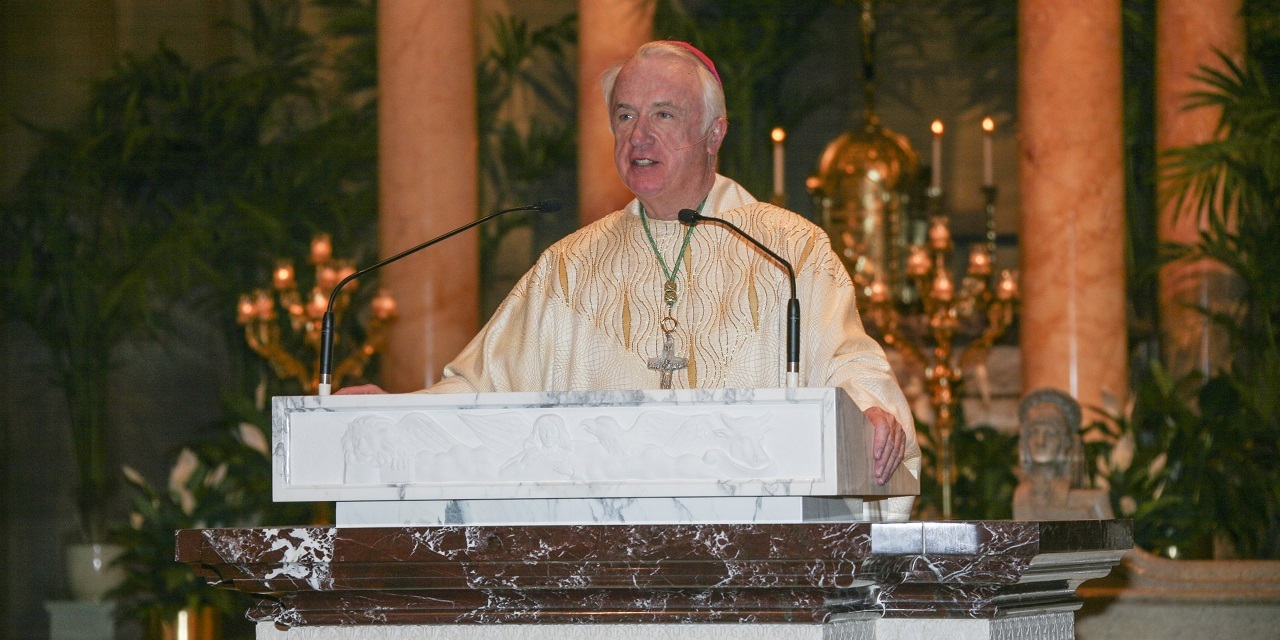Morrisey Calls for Catholic Church to Release Bransfield Report
By Kyla Asbury
West Virginia Attorney General Patrick Morrisey urged the Diocese of Wheeling-Charleston to release its investigative report on former Bishop Michael Bransfield's alleged misconduct. Morrisey said it was important to disclose the report immediately. "While we appreciate the fact that our investigation and lawsuit is causing the Wheeling-Charleston Diocese to disclose new improprieties about Bishop Bransfield, we believe it is imperative that the Diocese immediately disclose its investigative report about the Bishop," Morrisey said. "It’s time to come clean and release the Bransfield report—and no longer hide pertinent information from our office and the public." Morrisey said much of the information being released by the Diocese would never have been released if his office hadn't issued subpoenas, investigated and, ultimately, filed a lawsuit. "The Diocese did not issue its list of initially 31, now 40, credibly accused priests until after issuance of our first subpoena in the fall of 2018, and today’s disclosure comes approximately two weeks after the filing of our amended complaint," Morrisey said. "Now is the time for full disclosure. I repeat my call for the Diocese to stop fighting our efforts to get to the bottom of the sexual abuse scandal, come clean and end the secrecy – including release of the full Bransfield report." On June 5, Baltimore Archbishop William E. Lori, who was named the apostolic administrator of the Diocese of Wheeling-Charleston in September, wrote a letter to the church and priests. Lori wrote that he was assigned to commission a preliminary investigation into allegations of sexual harassment of adults and financial improprieties committed by Bransfield and that in March, at the time of the investigation’s conclusion, he reported to the church that he had appointed five lay investigators—both Catholic and non-Catholic alike—of with professional competency in civil law, finance, human resources and canon law, to conduct the investigation. "Their work occurred over a five-month period and included interviews with dozens of individuals who had worked closely with the former bishop and interacted with him in a variety of ways, and whose knowledge and perspective would inform the findings," Lori wrote. "As I shared with you two months ago, I submitted the preliminary investigation to the Holy See for final judgment and suspended Bishop Bransfield’s priestly and episcopal faculties within the Diocese of Wheeling-Charleston and the Archdiocese of Baltimore, as was my prerogative to do so as the Metropolitan Archbishop and as the Apostolic Administrator of the Diocese of Wheeling-Charleston." Lori said it was clear to him that more must be said about the report's findings and about what is being done to address those findings. Lori noted that the investigative team determined that the accounts of those who accused Bishop Bransfield of sexual harassment were credible and that the team uncovered a consistent pattern of sexual innuendo, overt suggestive comments and actions toward those over whom the former bishop exercised authority. "The investigation found no conclusive evidence of sexual misconduct with minors by the former bishop during its investigation," Lori noted. "It should be noted that due to privacy concerns and at the request of those who alleged harassment by Bishop Bransfield, the alleged victims and their personal accounts, which for them are a source of deeply-felt pain and humiliation, will not be disclosed by the Diocese." The Diocese has committed to providing counseling to Bransfield's victims, according to the letter, and Lori has asked that a permanent program be developed for such services. He noted the Diocese would reimburse for costs of mental health assistance. Lori also noted in the letter that Bransfield "engaged in a pattern of excessive and inappropriate spending," and that he initiated and completed extensive and expensive renovations to his private residences in both Wheeling and Charleston, as well as his intended retirement residence, the construction of which was halted at Lori's request at the time of his appointment. "The investigation further found that Bishop Bransfield misused Church funds for personal benefit on such things as personal travel, dining, liquor, gifts and luxury items," Lori wrote. Lori also noted that he had been the recipient of financial gifts from Bransfield over the years and that after he learned of how Bransfield had handled the church's finances, he returned the full amount of $7,500 to the Diocese and asked it to be donated to Catholic Charities. Lori also noted he would be listing the home used as the Wheeling-Charleston bishop’s residence for sale. The residence has been the home of four bishops since it was purchased, but Lori said it would serve that purpose no longer. "I am deeply pained by and sorry for the harm that the former bishop caused to those he was charged with shepherding in a spirit of Christ-like humility, service and pastoral care and charity," Lori wrote. "There is no excuse, nor adequate explanation, that will satisfy the troubling question of how his behavior was allowed to continue for as long as it did without the accountability that we must require of those who have been entrusted with so much—both spiritual and material—as bishops and pastors." Morrisey filed the lawsuit against the Diocese and Bransfield in March.
|
.
Any original material on these pages is copyright © BishopAccountability.org 2004. Reproduce freely with attribution.
